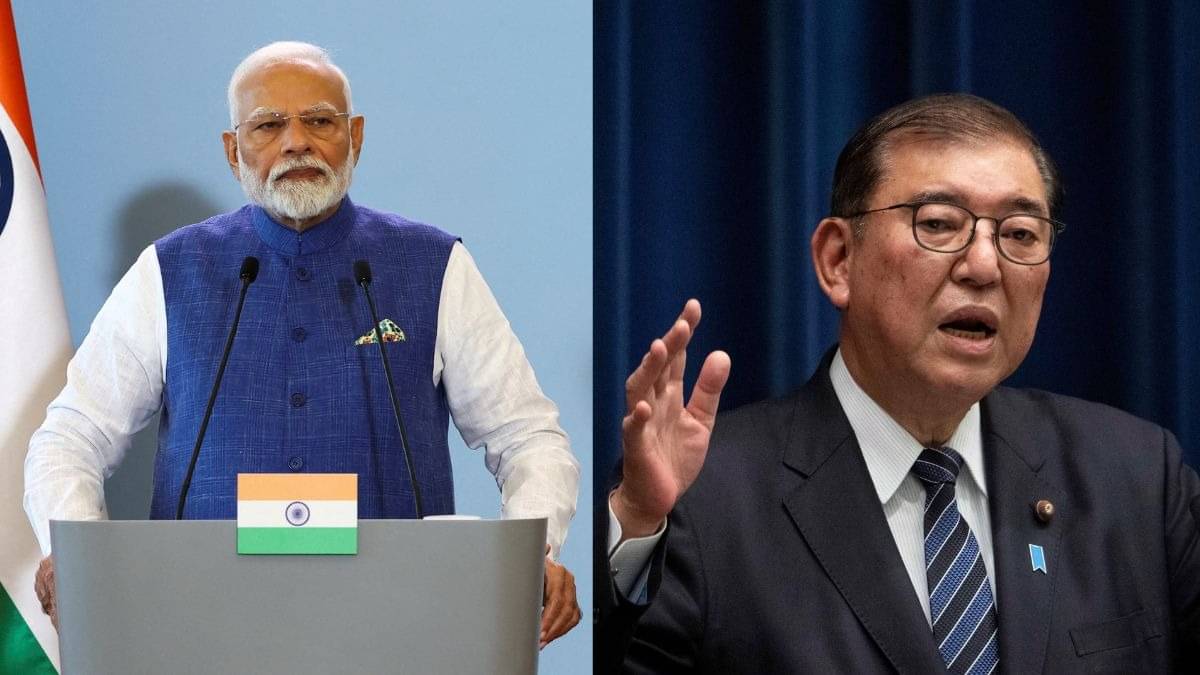PM Narendra Modi And Japanese PM Shigeru Ishiba. | Image:
Reuters
Prime Minister Narendra Modi today addressed the India-Japan Joint Economic Forum in Tokyo, underscoring India’s political and economic stability and projecting a confident vision of the country’s future.
The visit comes at a crucial moment as New Delhi seeks to strengthen economic and diplomatic partnerships in Asia, even as US tariffs on Indian exports create new challenges.
“Namaskar, Konnichiwa,” Modi began, setting the tone for his address. He emphasised India’s consistent policy environment and growth trajectory, declaring, “Today, India has political stability, economic stability, transparency in policy, and predictability. India is the fastest-growing major economy in the world, and very soon, it is going to become the third-largest economy.”
Reform, Perform, Transform
Highlighting India’s economic resilience, he noted, “In India, capital doesn’t just grow, it multiplies. You are all aware of the growth and transformation that have taken place in India over the last 11 years. We contribute 18% to global GDP, and our markets are delivering strong returns. Behind this change is our approach of reform, perform, and transform.”
Opening Up the Nuclear Energy Sector
In a significant announcement, Modi revealed that “after the defence and space sectors, we are opening the nuclear energy sector for the private sector.” This step is expected to generate new opportunities for investment and technology collaboration, further diversifying India’s energy mix.
Japan: A Long-Term Development Partner
The Prime Minister also emphasised the depth of India-Japan ties, stating, “Japan has always been an important partner in India’s development journey. From metro rail to manufacturing, semiconductors to startups, Japanese companies have invested over $40 billion (Approx Rs 3.3 lakh crore) in India.”
Ishiba on Complementary Strengths
Japanese Prime Minister Shigeru Ishiba, addressing the same forum, struck a complementary note.
He observed, “Japan’s advanced technology and India’s outstanding talent and vast market complement each other, leading to a dramatic expansion of our economic ties. Many Japanese companies are playing a key role in Make in India, and our cooperation extends across the Pacific, Indian Ocean, Africa, and even into Europe.”
Ishiba pointed to concrete examples of cooperation, including the Mumbai-Ahmedabad High Speed Rail project and the decades-long success of Maruti Suzuki in India.
“Maruti Suzuki, which entered India 40 years ago, now commands a significant market share,” he said, underscoring how Japanese firms have embedded themselves in India’s growth story.
Strengthening Supply Chains
He also highlighted Japan’s future vision for the partnership, “The signing of numerous cooperation documents between our companies today demonstrates Japan’s firm commitment to further investment in India and strengthening collaboration. It is clear evidence that we are steadily building a robust supply chain centred on our two nations.”
Future Investments and Critical Minerals
Japanese media reported that companies from the country are expected to invest up to 10 trillion yen (about $68 billion) in India over the next decade, with Suzuki alone pledging $8 billion in the next five to six years.
The two leaders are also expected to discuss tie-ups on critical minerals, an area where India has significant deposits but limited processing technology.

